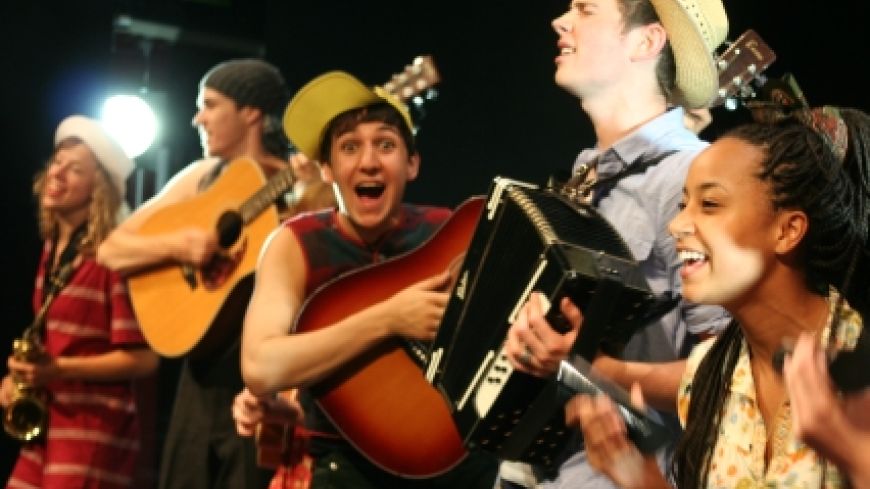
In the afternoon of Tuesday 12th January 2010 a magnitude 7 earthquake devastated Haiti. There were already 380,000 orphans before the quake, after it over one million. Here we have the story of Cassandra, the last child to be pulled from the rubble.
But we are getting ahead of ourselves. Firstly an almost manically happy and excitable cast of musicians take to the stage, becoming animals, landscape and even opposing armies as they present a potted history of the island nation. This playful, physical and inventive style is a trademark of this young company. But a darker side is also hinted at - a perilous place where a history of slavery and pagan Celtic beliefs forges links to a spirit underworld where death stalks. Orphaned Cassandra feels all is not well and is looking for Papa Legba, the keeper of the crossroads and intermediary to the spirits.
During her search Cassandra is both aided and hindered by the lazy trickster spirit Ti Malice and the high priestess Mambo, a surrogate mother figure who looks after her and her sister. Each in their own way try to protect her from both an English couple of tourists who might want to adopt her and take her away and from Baron Samedi, spirit of the dead.
The battle for her is joined by two nuns from the church run orphanage who, whilst consumed by their righteous hate for the superstitions of voodoo, seem to share the Baron’s love for obscenity, debauchery and rum and even go so far as to “baptise” the tourists in what is actually a voodoo initiation. In a country where “every child has a price” Cassandra’s future hangs on whether she will be caught up in bureaucracy.
The ensemble work together fusing music, movement and mime to deliver a script that is deeply rooted in folklore and is peppered with the oral wisdom, proverbs, jokes and riddles which infuse the Haitian culture. There are also parallels to the post earthquake attempt by missionaries to take children out of the country, which has been referred to as kidnap and an “adoption racket”.
It all makes for interesting, lively theatre but it doesn’t quite manage to weave legend with satire. It isn’t mystical enough to be enchanting nor biting enough in its wit to be social commentary and needs more of a thread of narrative to bring it to a satisfactory conclusion.
Times: 9-14 August 2010, 1.00pm
Tickets: £8 (£6)

